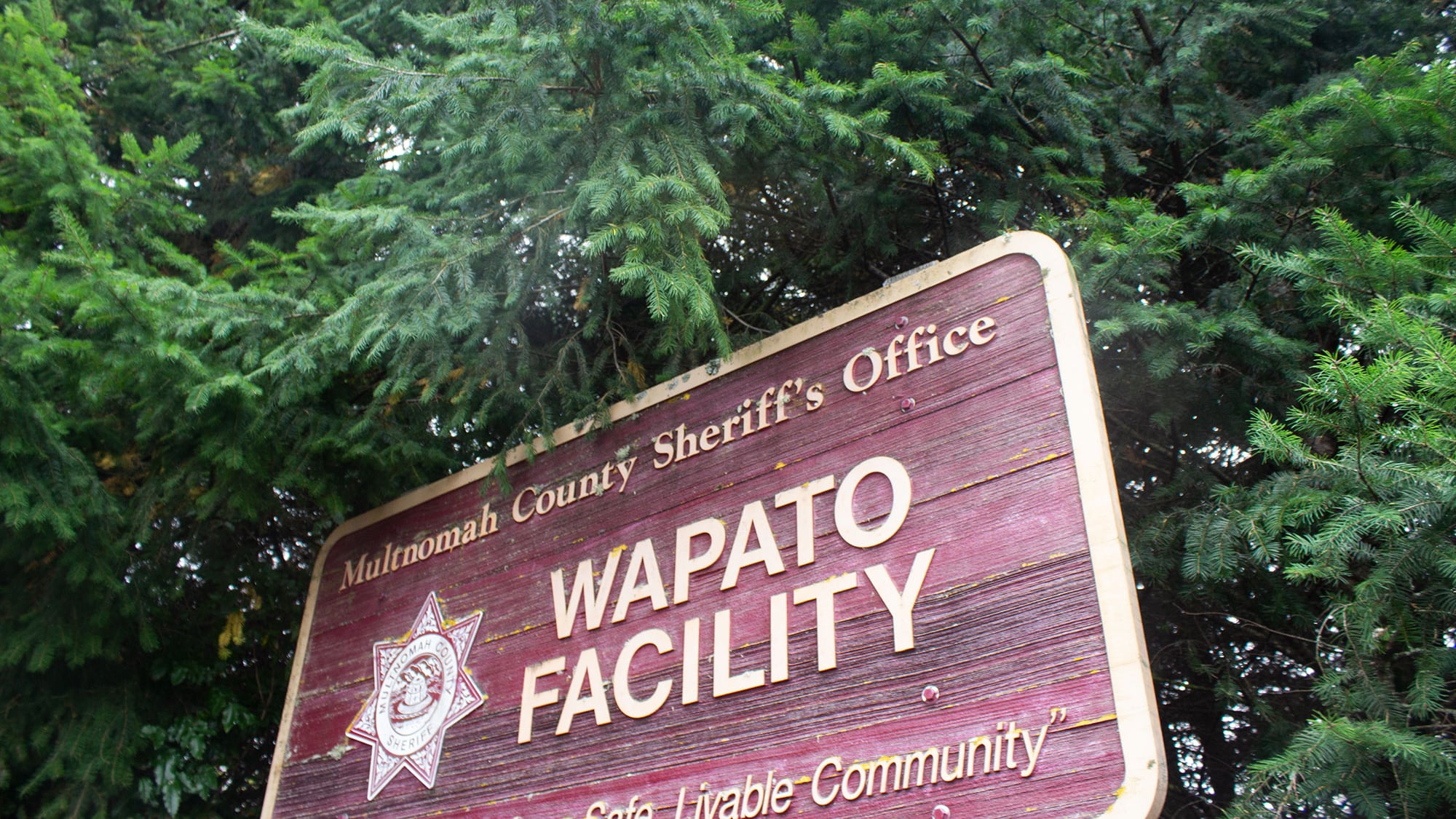As soon as next month, the Portland City Council will consider closing a redwood-sized loophole in the city's tree code.
It won't be soon enough to stop Jordan Schnitzer from chopping down hundreds or even thousands of trees that surround one of the city's most controversial properties: the vacant Wapato Jail.
Currently, developers face restrictions when they want to cut down trees on residential lots. Broadly speaking, they must preserve at least a third of existing trees, with particular emphasis on trees 36 inches or more in diameter.
But most industrial and commercial properties are exempt from such rules. Developers of property with such zoning can clear cut any trees. It's a loophole environmentalists have railed against since the city wrote its tree code in 2011.
The proposal to close the industrial-commercial loophole struck like a lightning bolt at the Sept. 24 meeting of the city's Planning and Sustainability Commission.
At that meeting, Oriana Magnera—a member of the commission who also works for Verde, a social justice nonprofit in Cully—surprised her colleagues by pushing successfully to recommend the City Council end the exemption.
"Industrial lands are often located near people of color and low-income people," Magnera tells WW. "We value trees for those communities perhaps most of all."
The exemption from the tree code for industrial and commercial development is part of the backstory in the ongoing saga of the never-used Wapato Jail, which Multnomah County sold last year to Jordan Schnitzer, owner and CEO of Harsch Investment Properties.
Schnitzer has been pushing elected officials to help him convert Wapato into a homeless shelter. At the same time, he's also pursued a backup plan: demolition of the jail and redevelopment of the 18-acre property into a warehouse facility, like surrounding parcels in North Portland's sprawling Rivergate Industrial District.
WW has learned those demolition plans would wipe out trees that surround most of the property, to facilitate the flow of trucks around the perimeter of the planned warehouse complex.
The trees at Wapato have a history. In the early 2000s, as Multnomah County worked to develop Wapato, it signed a good neighbor agreement that included preserving a 3,200-foot-long buffer of trees along the property's perimeter.
Wapato sits on a peninsula surrounded by wetlands connected to Smith and Bybee lakes. The purpose of the buffer, says Troy Clark, president and founder of the nonprofit Friends of Smith and Bybee Lakes, was partly to shield the jail from view and partly to augment wildlife habitat.
Although the jail never opened, the plantings thrived, forming a dense barrier of evergreen and deciduous trees. Today, it's nearly impossible to see the forlorn jail, except from a fenced parking lot on the property's north side.
Environmental advocates, such as Bob Sallinger of the Portland Audubon Society, have long argued that exempting industrial and commercial lands leads to "heat islands" in the city and speeds the destruction of wildlife habitat.
"A lot of our industrial sites are in really important ecological areas," Sallinger says. "Portland has ambitious goals for tree cover—and this loophole that makes no sense."
The city's current tree protections are due to expire Dec. 31. The Planning and Sustainability Commission was working on a proposal to ask the City Council for a two-year extension Sept. 24, when Magnera abruptly suggested axing the industrial-commercial exemption as well.
Her move caught big industrial landowners unaware.
Corky Collier, executive director the Columbia Corridor Association, a business group that includes much of the city's heavy industry, happened to be at the meeting on an unrelated matter.
"There was no public notice of this idea," Collier says, "so nobody who might have objected was there. Nobody saw it coming."
The proposal next heads to the City Council for a vote.
City Commissioner Amanda Fritz, who oversaw implementation of the tree code, is likely to vote yes. She says the city has long intended to revisit the industrial-commercial exemption and the need to do so is urgent. "Our planet is on fire," Fritz says. "And we need to be acting that way."
But if the city does remove the exemption, it won't save the trees at Wapato.
That's because Schnitzer's company applied for a demolition permit last year and renewed it Sept. 23. He and his team attended a recent meeting of Metro's Smith and Bybee Lakes Advisory Committee and showed plans for the Wapato property—minus the jail and much of its 40-foot buffer.
In a Sept. 24 letter, Clark urged Schnitzer to preserve as many of the existing trees as possible, while knowing the exemption means he doesn't have to preserve a single one.
"We are completely at his mercy," Clark says. "Completely."
Schnitzer, whose company owns millions of square feet of industrial and commercial property across the West, says removing the industrial-commercial exemption would be a "terrible mistake" that would increase development costs, reduce flexibility and hurt job creation.
As for Wapato, Schnitzer says when he demolishes the structure, probably later this month, he hopes to preserve or replace one-third of the existing trees on the property. He'll do so voluntarily. He also plans to use glass and paint that will blend in with the surrounding natural area.
"Let's focus on the animals and biodiversity," Schnitzer says. "All of us are environmentalists in this state."
